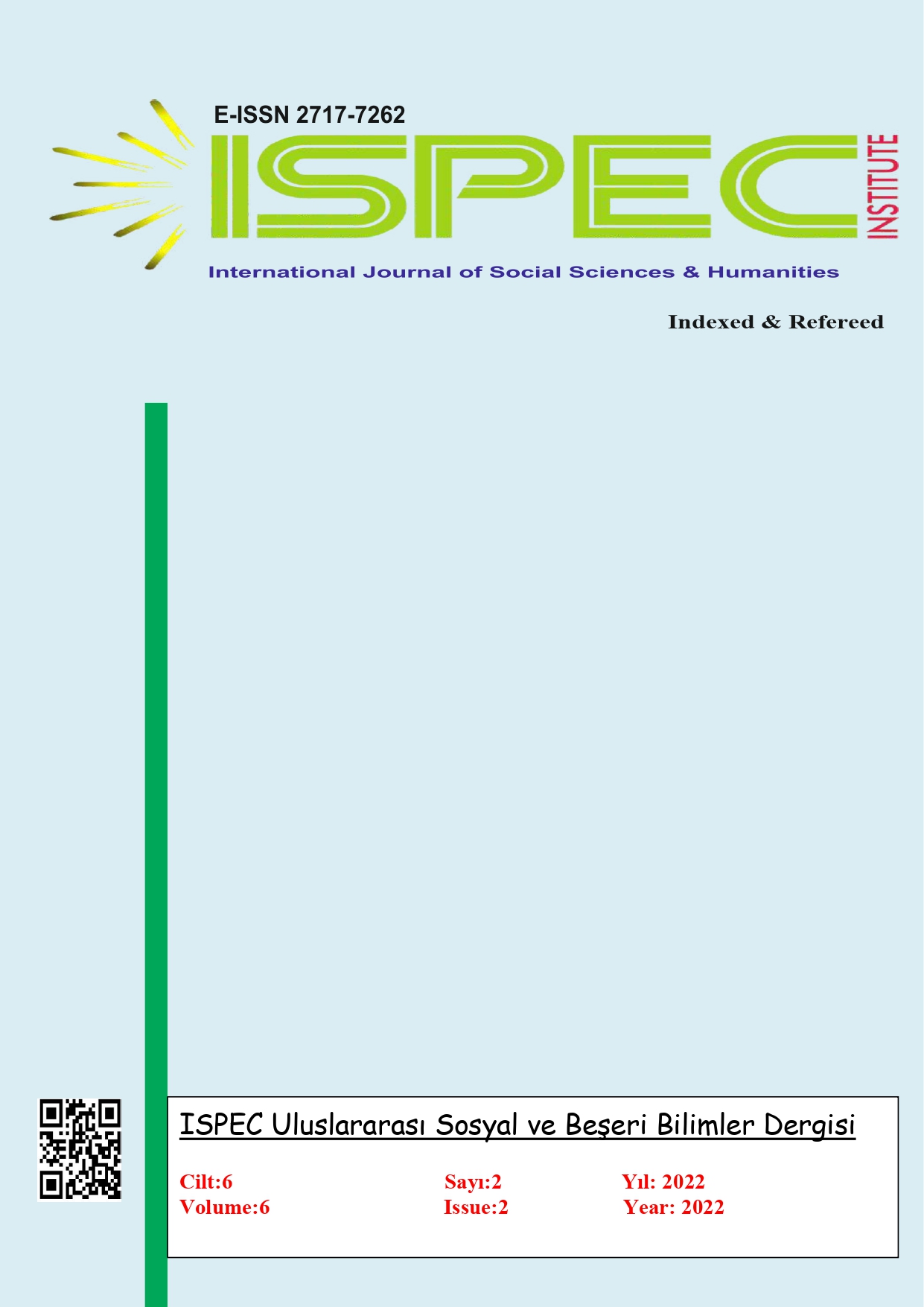Methods of Class Teacher in The Development of The Education and Teaching Process
DOI:
https://doi.org/10.5281/zenodo.7339173Keywords:
Teacher, Guide, Leader, ExperienceAbstract
Teaching is regarded as a sacred profession in terms of society. By reinforcing the learning processes with theoretical and practical subjects, he showed guiding attitudes to new studies under today's conditions. Teacher-student relations are among the most important issues. It analyzes information about the developments in primary school teaching in the education and training process. It is developing today. The education system in different countries creates new structures as technology develops. Providing integrity in education and training helps the person to create aspects that will contribute to society in the future. In this way, analyzing the professional and personal qualities of teachers and changing them has been one of the main issues. Knowledge creates repetitive and innovative topics in terms of continuity. The information we receive in the education and training process provides effective benefits not only in school life but also in our lives. In terms of general culture, classroom teachers aimed to improve themselves by taking lessons in many fields. General culture not only as a lesson but also provides new opportunities to our life and social structure. The professional roles of teachers are of great importance. It renews itself by categorizing the necessary subjects and by making studies to determine the important places thanks to its knowledge skills. Classroom teachers have the right to graduate in the fields they feel closest to by passing many courses in the undergraduate field. Each field knowledge is evaluated separately from each other. A good understanding of the system is one of the important points. The teacher is in constant interaction with the student, so the teacher who implements the education system improves the student's ability to interpret and analyze the lesson while teaching the student. With the development of science and technology, there have been technological developments that aim to change education in a parallel way by affecting the society to a great extent. Teachers who provide learning in society and teachers need innovative information in terms of knowledge. In order to be successful in education, it is necessary to understand the system of that education well and to know its qualifications well. Thus, its own professional structure is created.
References
Apaydın, Z., & Kandemir, M. A. (2018). İlkokulda sınıf öğretmenlerinin fen bilimleri dersinde argümantasyon yöntemi kullanımına ilişkin görüşleri. Journal of Computer and Education Research, 6(11), 106-122.
Bozkurt, O. (2012). Fen eğitiminde araştırmaya dayalı öğrenme yaklaşımının öğrencilerin akademik başarılarına ve bilimsel süreç becerilerine etkisi. Mustafa Kemal Üniversitesi Sosyal Bilimler Enstitüsü Dergisi, 9(18), 187-200.
Celep, A., & Bacanak, A. (2013). Yüksek lisans yapan öğretmenlerin bilimsel süreç becerileri ve kazandırılması hakkındaki görüşleri. Journal of Turkish Science Education, 10(1), 56-78.
Çetin, A. (2008). Sınıf öğretmeni adayların eleştirel düşünme gücü (Doctoral dissertation, Bursa Uludag University (Turkey)).
Görgen, İ., Çokçalışkan, H., & Korkut, Ü. (2013). Öğretmenlik uygulaması dersinin öğretmen adayları, uygulama öğretmenleri ve uygulama öğretim üyeleri açısından işlevselliği. Muğla Üniversitesi Sosyal Bilimler Enstitüsü Dergisi, (28), 56-73.
Karataş, K. (2020). Öğretmenlik Mesleğine Kuramsal Bir Bakiş. Elektronik Eğitim Bilimleri Dergisi, 9(17), 39-56.
Kumral, O. (2010). Eğitsel eleştiri modeli ile eğitim fakültesi sınıf öğretmenliği öğretim programının değerlendirilmesi: Bir durum çalışması.
Sünbül, A. M. (2011). Öğretim ilke ve yöntemleri. Eğitim Yayınevi.
Şahin, Ç., & Kartal, O. Y. (2013). Sınıf öğretmeni adaylarının sınıf öğretmeni yetiştirme programı hakkındaki görüşleri. Uşak Üniversitesi Sosyal Bilimler Dergisi, 6(1), 164-179.
Taşdemir, M. (2006). Sınıf öğretmenlerinin planlama yeterliklerini algılama düzeyleri. Türk Eğitim Bilimleri Dergisi, 4(3), 287-307.
Taşkın, Ç. Ş., & Hacıömeroğlu, G. (2010). Meslek bilgisi derslerinin öğretmen adaylarının profesyonel gelişimindeki önemi. Pamukkale Üniversitesi Eğitim Fakültesi Dergisi, 28(28), 165-174.
Yetim, A. A., & Göktaş, Z. (2004). Öğretmenin mesleki ve kişisel nitelikleri.
Downloads
Published
How to Cite
Issue
Section
License
Copyright (c) 2022 ISPEC International Journal of Social Sciences & Humanities

This work is licensed under a Creative Commons Attribution-NonCommercial-NoDerivatives 4.0 International License.






